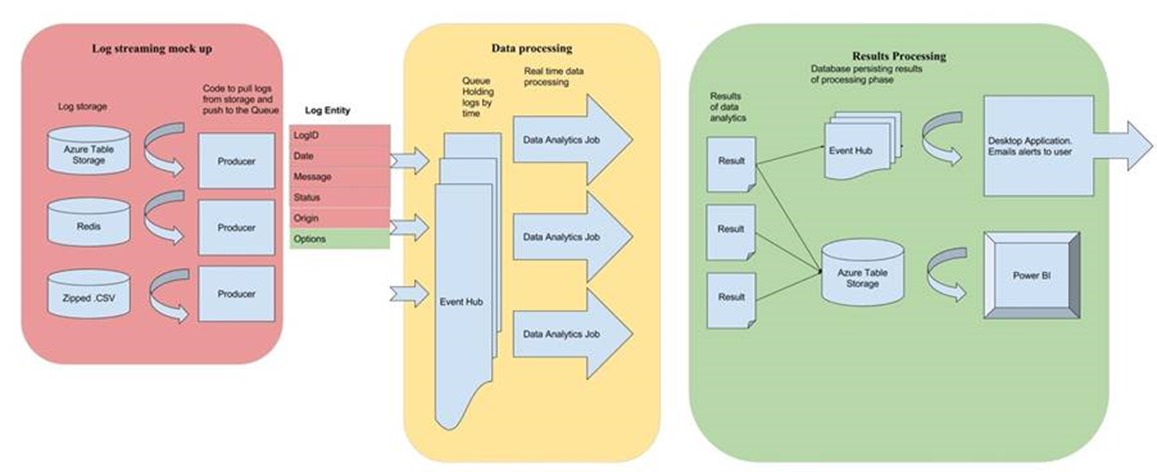Azure Cloud Educator Grants at University of Dundee
University of Dundee, Scotland, is one of the UK's leading universities, internationally recognised for its expertise across a range of disciplines. The University collaborates with a broad range of groups to ensure that technological systems are built to meet the needs and aspirations of a wide variety of people and their work benefits society and helps to enhance the lives of many individuals.
Computing at the University of Dundee is truly distinctive, and the institution clearly has a commitment to the student experience which has seen them rated 4th in the UK for Computing by the 2014 National Student Survey.
Andy Cobley is a Senior lecturer in the School of Science and Engineering at the University of Dundee where he is program director for the Data Science (https://www.dundee.ac.uk/study/pg/data-science/ ) and Data Engineering (https://www.dundee.ac.uk/study/pg/data-engineering/) MSc programs. Andy primary primary research is the application of Business Intelligence and Data Science to the sciences, most notable working with Professor Angus Lamond of the Centre for Gene Regulation and Expression moving towards real-time pre-processing of Mass Spectrometer data using scalable clusters.
Case Study: Azure cloud for computing at the University of Dundee.
The Azure cloud computing platform has enabled Computing@Dundee to allow it’s students greater freedom than ever before to explore the construction of scalable computing platforms in ways that would have been difficult previously.
Through the Microsoft Azure Educator Grants available from Microsoft we allow our undergraduate and MSc students to create, configure and destroy cloud computing resources through an industry standard interface preparing our students for the world of commercial computing. Computing@Dundee believes that students should leave University ready and prepared for the world of commerce and should have experience of the tools and environments they will meet there.
Our students first meet the Azure platform in their Junior Honours year whist attending the secure internet programming module.
For their first assignment
Students deploy a java based website using Cassandra Database as a backend to the azure platform using the continuous deployment platform Jenkins pulling code from github.
This open source approach to software development mimics the way smaller enterprises develop their code, students will have had experience of .Net development in previous modules they will have completed.
For their second assignment
Students are given free rein to use Azure virtual machines to develop a web application of their own choosing. Access to Azure continues in their honours year, either whilst studying the Big Data module or for their final degree project.
One such project this year used an educator grant to develop a system to aggregate and deliver business Intelligence as a proof of concept for a Dundee based cloud computing company.
The project set out to show that a system can be created, combining pre-existing big data and analytics services, coupled with cloud computing technology, that will cost effectively take varying volumes of log data and produce useful and clear insights into the health of the systems which generated those logs .
System technology
- Azure table storage,
- Azure stream analytics,
- Azure event hubs,
- Redis Cache
- Microsoft’s power BI tool for visualization.
Data Science and Data Engineering MSc programs
Students on the MSc programs enjoy access to the Azure platform to explore big data solutions, creating NoSQL clusters, Hadoop and Storm installations and microservice systems using Docker.
Data Science students of course use Azure Machine Learning to analyse big data sets looking for hidden trends and features that cannot be extracted using traditional statistical and business intelligence methods.
Data Engineering students explore Azure for developing Devops solutions both from open source systems and Microsoft’s native offerings.
MSc projects of course benefit from educator grants allowing students to develop platform solutions that can scale (within budget $100 per student per month) to handle and process data.
In 2015 on student explored twitter data to extract information on creative community interaction in Tayside and by using machine learning explore the language of the creative community to help develop an ontology of creativity. The work carried out by that student is being developed to use twitter to help warn about potential flooding in remote areas.
Using Azure educator grants in computing @Dundee has developed over the past 3 years and is now firmly embedded in the curriculum.
The grants has given staff and students the ability to explore the cloud platform and the freedom to spin up and destroy resources on demand.
The only downside is that it seems that grants are linked to a single email address for a year making it difficult to carry resources from year to year, however grants can be extended annually if you contact the Azure University team requesting a grant extension before the expiry date and simply confirming the email address used and Grant ID Number. Unfortunately grants which expire cannot be extended but can be converted to pay as you go accounts to retrieve data. As such I would simply stress make sure you contact Azure university before any grants expire to have them extended.
We will be continuing to use Azure educator grants, I couldn’t be happier with Azure Educator Grant programme and would recommend it to any educators looking to exploit the power of the cloud.






